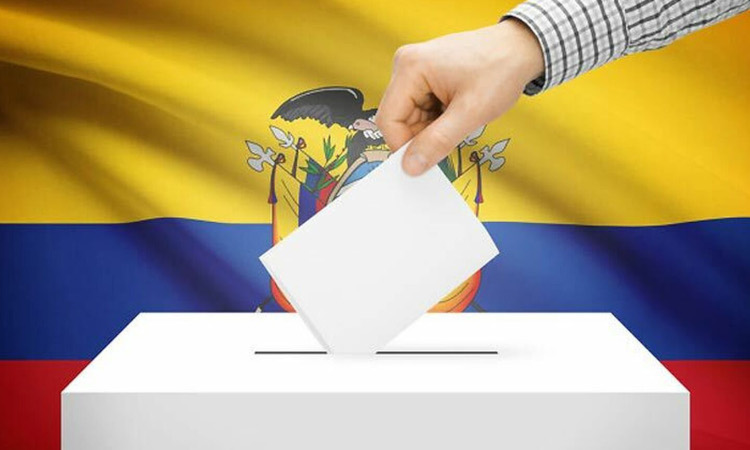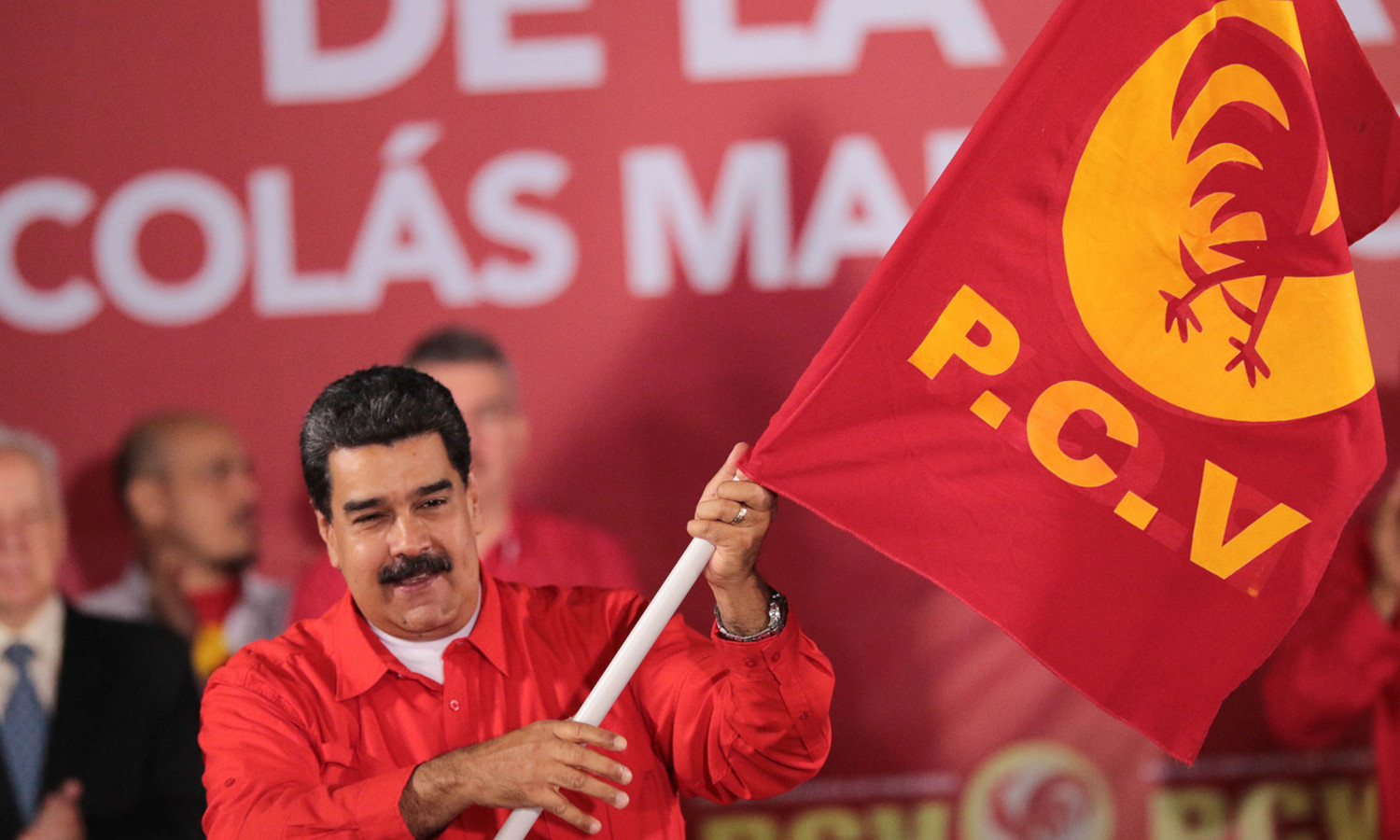Claudia Sheinbaum, a left-wing former Mexico City mayor – the first woman and the first jewish person to be elected president in Mexico – won the recent presidential election by a margin of more than 30 percentage points over her nearest rival, entrepreneur Xóchitl Gálvez of the main centre-right opposition alliance.
She won as the candidate of Morena (Movimiento para la Regeneración Nacional), the current party in power that is led by Andres Manuel López Obrador, universally known by his initials – Amlo. After six years in power, Amlo enjoys an approval rating among the Mexican people of an unprecedented 60 percent, and Sheinbaum has his backing as his successor – he himself being prevented for running for the presidency under the terms of the Mexican constitution, which does not allow consecutive terms in office.
Although Sheinbaum has excellent credentials herself – she is a Nobel prize winner no less – nobody doubts that it is as heir to Amlo that she has swept to an overwhelming victory.
Basis of Sheinbaum’s victory
Amlo’s popularity is not hard to understand. Under his leadership wages and their purchasing power have increased; a system of old-age pensions has been introduced; young people are receiving help towards the cost of their tertiary education while the minimum wage has been doubled.
“According to the autonomous body responsible for assessing poverty, Coneval, the proportion of people affected was 49.9 percent in 2018, compared with 43.5 percent in 2022, corresponding to almost nine million people lifted out of poverty. The population in situations of extreme deprivation has also fallen, from 14 percent in 2018 to 12.1 percent in 2022.” (In Mexico, ‘Amlo’s’ popularity guarantees victory for his chosen successor by Anne Vigna, Le Monde, 30 May 2024)
Ms Vigna also quotes “David Porfirio Rivera, a burly 38-year-old bricklayer, sporting a tank top and cap covered in plaster, picked up the flyer and loudly called out: ‘The best president Mexico has ever known.’ … David recited in one breath the arguments of those in power:
“‘Our salaries have doubled, our vacation days have doubled, and we’ve never lacked work even though the opposition said the economy would collapse if we improved our conditions. Amlo dared to confront them and defend us.’”
Disappointment of imperialism
Needless to say, the response of the world’s bourgeoisie is just the opposite. “In the volatile days following the election, investors’ alarm has been on full display, with Mexican stocks battered and the Peso suffering its worst week since the pandemic,” says Natalie Kitroeff of the New York Herald Tribune. (Mexico’s leftists won big. Investors are worried, 9 June 2024)
Investors worry that Sheinbaum will follow in Amlo’s footsteps at the expense of their own profits and are hoping that she can be financially coerced into adopting more ‘pragmatic’ positions.
Coercion of the governments of oppressed countries takes place through the debts these countries owe to the IMF and imperialist banks. Generally, so much of their GDP is commandeered by imperialism in the form of interest on debt and profit-taking from national enterprises that have been sold off to imperialist multinationals that these governments can only continue to provide even the most basic services if they borrow more.
Mexico is a country that constantly runs a budget deficit and therefore from time to time it needs to borrow to cover its costs. This gives imperialism great hopes that Sheinbaum can be persuaded to ‘see sense’.
The Financial Times points out that Sheinbaum “will have to face slashing the largest budget deficit since the 1980s, after current President Andrés Manuel López Obrador abandoned austerity and went on a spending spree …
“Hitting next year’s deficit target of three percent of GDP will require cuts equivalent to almost three percent of GDP or new revenue.” (Mexico’s next leader faces gaping budget hole by Christine Murray, 23 May 2024)
Since Sheinbaum has committed herself to increasing social spending, including the provision of 150 new schools, there is no question that further loans will be required. Nor is there any question that imperialism will be looking at the imposition of austerity on the Mexican population and further privatisation, most especially of Pemex, Mexico’s oil company, which is limping along underfunded in state ownership.
Problems facing the new government
This underfunding is to be explained by the fact that with limited financial resources at his disposal, Amlo prioritised boosting the economic situation of the Mexican people. Inevitably this meant neglecting other areas of investment, especially the funding of Pemex and the security services.
The underfunding of security services has proved to be a bonanza for Mexico’s crime cartels, which have used the opportunity to service the USA’s appetite for illegal drugs. Amlo adopted the slogan ‘abrazos, no balazos’ (hugs not bullets) to express a hope that with improved opportunities in the legal job market, the attraction of illegal enterprises would wither away.
However, things were too far gone for that to be a realistic hope, as experience has now proved. In any event, the cartels are more of a problem for the USA than they are for Mexico, so why should Mexico pay?
It is US imperialism’s contradictory policies that demand that drug production should be illegal while at the same time drug consumption is being heavily encouraged amongst the US population. Popular culture – music, novels, films, etc – all promote the consumption of illegal recreational drugs as normal and cool, a pastime for even the most respectable and empathetic people.
Drugs are not advertised on billboards like cigarettes used to be, but the promotional techniques are at least as effective through the unrelenting PR campaigns targeting impressionable communities such as students and oppressed minorities.
For the past 60 years, consumer demand for recreational drugs has been growing exponentially, and Mexican cartels have been on hand to provide the supply. As demand soared, so did the profits of the cartels, and so did their power. With eye-watering supplies of American cash, the cartels are able to corrupt officials who might otherwise interfere with their activities, as well as to buy arms to enforce their interests both against the state and against rival cartels.
The result has been to turn various areas of Mexico into fiefdoms of one or other cartel, where it is the gangsters who maintain law and order, not the state.
If the Mexican government was serious about defeating the cartels it would require massive expenditure on its part – money it quite clearly does not have. In fact, it is estimated that the drug trade provides some five percent of GDP and its profits largely remain in the country, unlike the GDP produced by entities controlled by foreign multinationals.
“The cash that trafficking organisations earned wholesaling heroin in the USA was reinvested locally in everything from cattle ranches to construction companies and even an airline.” (Analysis: How the ‘Mexican miracle’ kickstarted the modern US-Mexico drugs trade by Nathaniel Morris, The Conversation, 10 April 2024)
Gang violence
However, in the absence of applicable state infrastructure such as police, judiciary and prisons, disputes all tend to be settled by violence. “The present is the problem. A few months ago, the streets here were largely empty. A fight between two criminal groups – the Tlacos and the Ardillos – over control of local transport had left at least eight drivers of public vans and taxis dead.
“Gunmen repeatedly shot one driver, left his body in his car and set it on fire along a main highway. Two minivans were burned in April. At the peak of violence, drivers refused to work for two weeks. Schools shut.
“Local government and police were useless. A local priest … reached out to gang leaders and with his bishop negotiated a truce by WhatsApp. Each of the criminal groups got its own ‘jurisdiction’ to ‘operate’ areas to sell drugs, control public transport and extort small businesses, according to security consultants, church officials and other locals.
“The city’s 700 or so taxi drivers now pay 1,500 pesos a month, or around $90, in protection money, they add. Restaurant and bar owners pay 3,500 pesos in so-called derecho de piso …
“Mexico’s criminal groups aren’t primarily trafficking drugs anymore. That’s maybe half their business these days. They’ve moved into extortion, transport, avocado farming, mining, logging, people smuggling and much more.
“Falling prices for certain drugs, such as Guerrero’s staple crop of poppy, was in part what made them look for cash elsewhere. Some activities are both lucrative and less dangerous than narcotrafficking – such as getting migrants up and across the US border, using the same routes as they do for drugs.
“This diversification of the narcotrafficker business model is changing Mexico in another way. The cartels are now engaged in activities that make control over territory and local authorities a business imperative. Politicians and policemen are reluctant to stand up to them or are in their pockets.
“That helps explain why the Catholic Church stepped in to end the violence here. And Chilpancingo is the seat of the regional government, on the surface at least with the evident trappings of state authority. In the more remote hills around here and down to the Pacific coast around Acapulco, there are places run fully by the cartels. In nine municipalities they pick the mayor and police chiefs, according to a local security consultant who, out of fear for his safety, insisted we not use his name.
“Resistance is dangerous. Two years ago, in San Miguel Totolapan, the mayor and 20 other people were gunned down at his house and the town hall after defying a local cartel …
“By some counts, in nine of 32 regions Mexico’s government has ceded control over governing institutions and land. Others say a fifth to a third of territory is ‘ungoverned spaces’, as a US general noted a couple years ago.” (The most important national security issue facing America, with the least amount of attention by Matthew Kaminsky, Politico, 6 January 2024)
The author cited above thinks that “there’s an alternate path for the future: one where the government in Mexico City establishes control over this and other lawless regions and takes the country confidently into the first world”, but naturally he does not spell out where that path is to be found!
Of course, if the USA, which in fact has financed the rise of the cartels through its promotion of a drug culture among its population, had not insisted on drug production being criminalised, all these drug-related enterprises could have been controlled by the usual state institutions, just like those who produce cigarettes or alcoholic beverages.
And if the USA had not promoted the Nafta free trade agreement for the benefit of its monopolies, which had the effect of causing some 800,000 rural workers in Mexico to lose their jobs and thus be ready recruits for the drugs industry, then the cartels could never have grown to their present size. Furthermore, it is because of the USA’s hypocritical insistence that the industry had to remain illegal, and the massive profits it made from trade with the USA, that Mexico today is being parcelled out among the gangs.
This is not a problem for which any Mexican government can be blamed, especially not the people-oriented governments led by Morena, and it is not a problem that any Mexican government has the resources to resolve – at least not in the short term. Amlo’s ‘hugs not bullets’, though clearly far from ideal, is the best that can be managed in the interim.
The silver lining
There is one beacon of hope for Morena in its bid to improve the economic position of the country and its labouring citizens, and that is in its relationship with China. China can offer loans at competitive rates, forcing imperialist concerns to lower their demands if they want to continue to do business with Mexico.
Trade relations between Mexico and China have already proved extremely beneficial. “Unlike other Latin-American countries, Mexico has declined to join China’s Belt and Road Initiative, but China and Mexico have still collaborated on several major infrastructure projects.
A Chinese state-owned enterprise (SOE) is part of a consortium that built a section of the controversial Tren Maya, one of López Obrador’s flagship infrastructure projects, and two other Chinese SOEs won contracts to upgrade the metro systems in Mexico City and Monterrey.
“A relatively recent development is the growing number of Chinese companies setting up operations in Mexico to export to the US market. According to Mexican government statistics, China invested approximately $1.7bn in Mexico from 2018 to 2023. While that pales in comparison to the $207bn of US investment stock in the country, looking merely at recent data on foreign direct investment (FDI) fails to capture the breadth of this phenomenon.
“In 2023, Chinese companies announced $12.6bn in new investments in Mexico, second only to the United States. Much of this activity has been catalysed by the existence of bespoke special economic zones geared toward Chinese investors.” (Mexico and the United States need to talk about China now by Connor Pfeiffer and Ryan C Berg, Foreign Policy, 7 May 2024)
Clearly, what Mexico’s vulture-like imperialist creditors would most of all like to achieve is forcing Mexico to cut off its ties with China. It is highly unlikely, however, that the USA would be prepared to pay a price high enough to compensate Mexico for the losses it would incur were it to comply with such demands.
We wish Claudia Sheinbaum every success in dealing with the very complex situation she will be facing. It is to be hoped that she will continue to lead the Mexican people in standing up to imperialist bullying and in building an ever more prosperous society and eliminating poverty among the masses.















